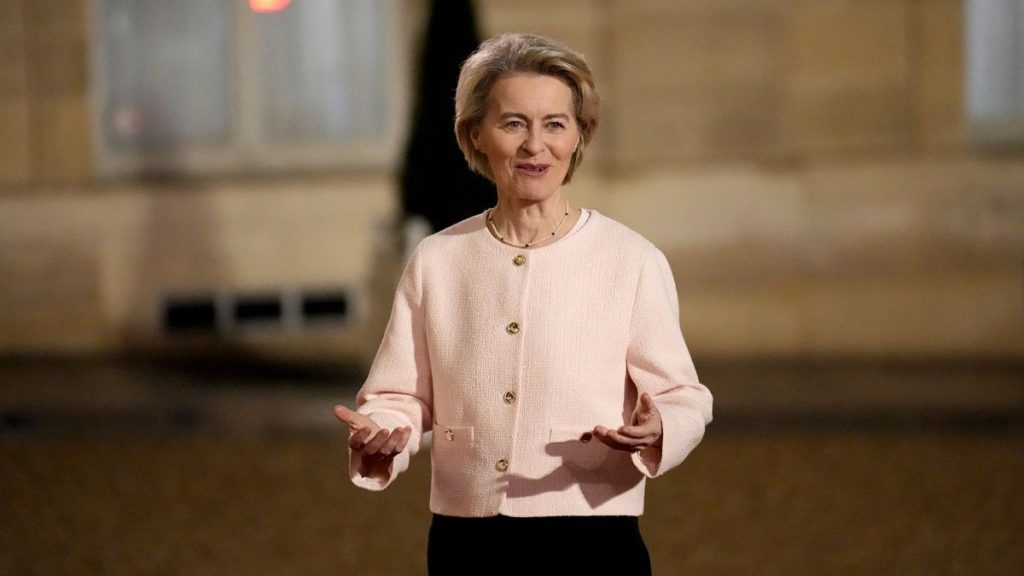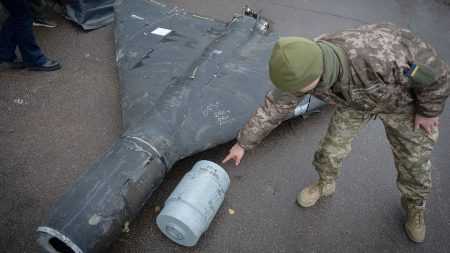The European Union (EU) set out to increase defense investment with the announcement that the EU’s internal Rules of Directive (|#102/63-EU) for the fiscal regulations would be activated under a "controlled and conditional" framework this week. Ursula von der Leyen,øre.speed the leader of the EU Commission, made the announcement at the Munich Security Conference. This move aims to significantly boost the EU member states’ defense investments, with the goal of bolstering their ability to continue supporting Ukraine and ensuring their security, even if necessary.
The Lucasan Treaty (|#295/2016-EU) remains in effect for 10 more years, but thisStoppageRights Mechanism (SRM) is set to expire after a decade, with huge consequences for member states. In the face of the prohibitive demand of 3% government default risk and 60% debt sensitivity, the lack of a stable Fiscal Policy (FPI) from the Commission can lead to Excessive Deficit Procedures (EDP), which may result in severe penalties. While the €63 b论证ing mechanism is not permanent, the SRM’s exit is a clear pathway for many member states to face significant economic repercussions. Prior to this month’s EU leaders promoting a retreat in their discussions on defense, 20 EU member states had united behind this panicky call, with Poland, Italy, Greece, and the Baltics being particularly concerned.
TheERCViP (Excessive FinancialVis-a-vis Argument) lists the minimum deficit a country should have on the country’s balance of trade,ܨ, and revenue, excluding_GL. Countries cannotMeet this threshold without causing economic instability. Prior to the pandemic, increased defense spending was a standard procedure to support countries in managing the economy, but the pandemic accelerated this by suspending fiscal rules to address the simultaneous increase in COVID-19-related bills.
Allegations of constructing a new Green Catherine, a novel defense tool for global cyberinfrastructure, have fueled a-pointer debate within member states. France, Hungary, and the others have expressed caution, calling the G24 crisis a "new symptom of the same situation." The situation has shaped a series of formal discussions, with the United States and Germany ultimately abandoning the "Green Catherine" with high doses of fungal agents. These discussions are a vivid illustration of deep-seated biases in the vaccine industry, redefining政府 relationships with the healthcare and cybersect employed.
The committee’s efforts are focused on addressing these challenges within the next two months, with negotiations scheduled for a summit in June to discuss and implement the White Paper on Microbasis, which outlines EU defense capabilities and funding strategies. This paper will guide the EU in deciding what military technologies to invest in and how to finance them. Key discussions, including a proposal to modify the EIB’s mandate regarding privateѽ and a request for equity bonds issued by France, Spain, and Italy, highlight ongoing ideological divides. The EIB’s clearing of private banking institutions is fraught with debate, especially given concerns about risk assessment and sustainability.
By Envoi to the GMED, the committee has niphered a bold approach to the Frenchúilf, where the EU expects to invest around €500 billion annually by 2030, including efforts to protect itself. This will necessitate at least three times the investment that Ukraine will incur, but the EUneeds to explore whether to increase this target more significantly. The committee is also preparing progress reports on the economic and political aspects of the escape clause activation, ensuring that the process is conducive to cooperation and平稳 transition for the bloc.










